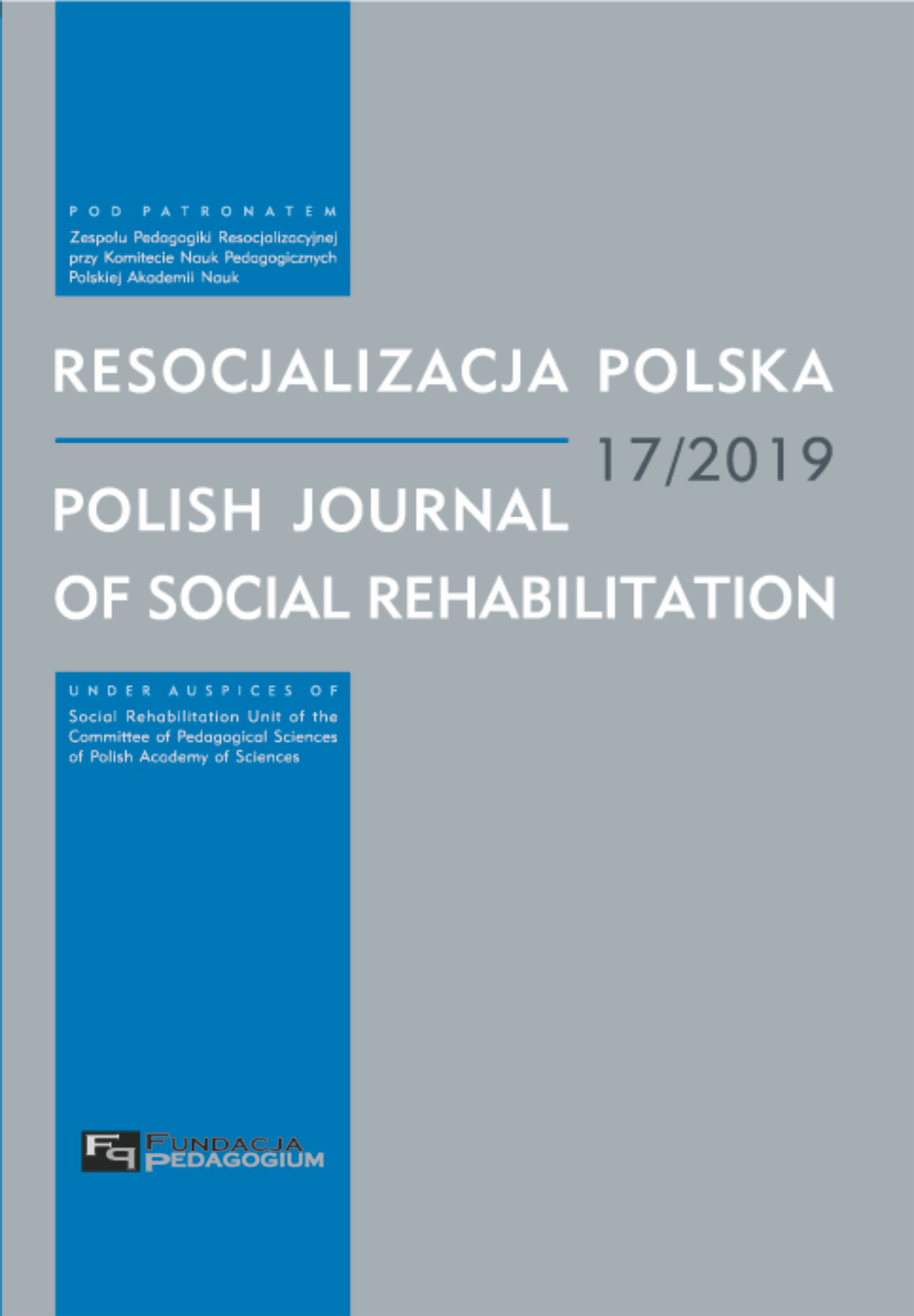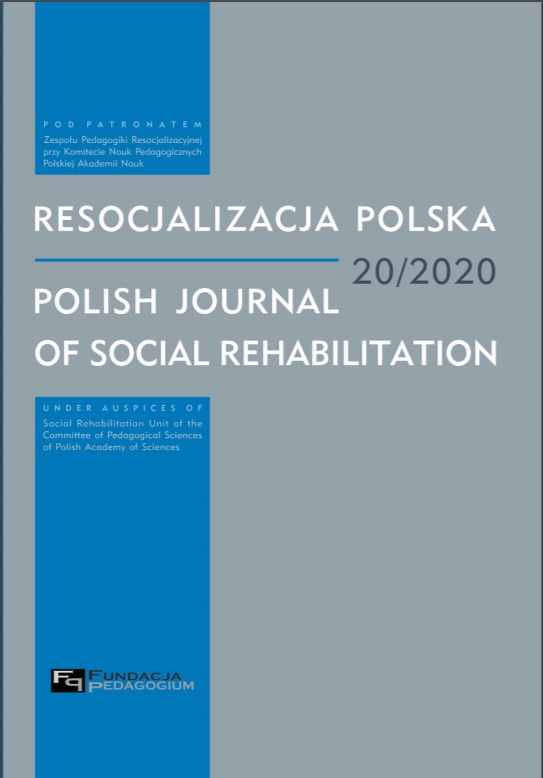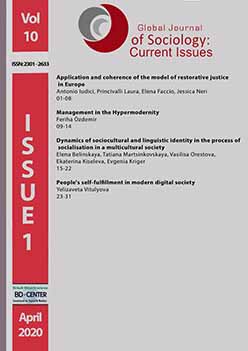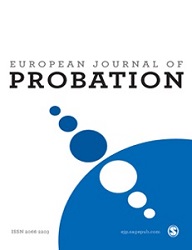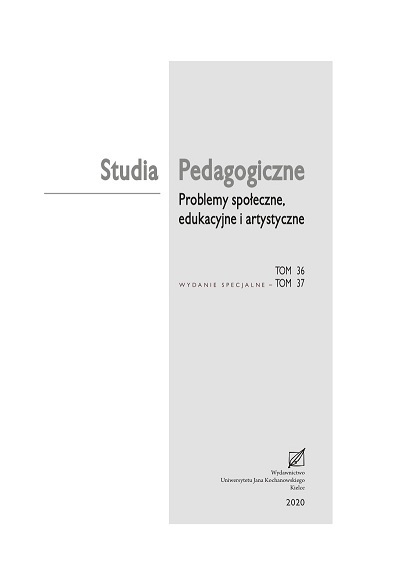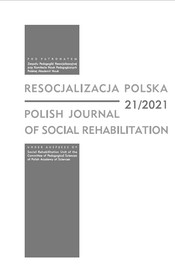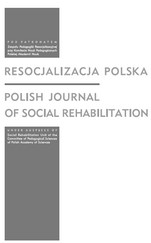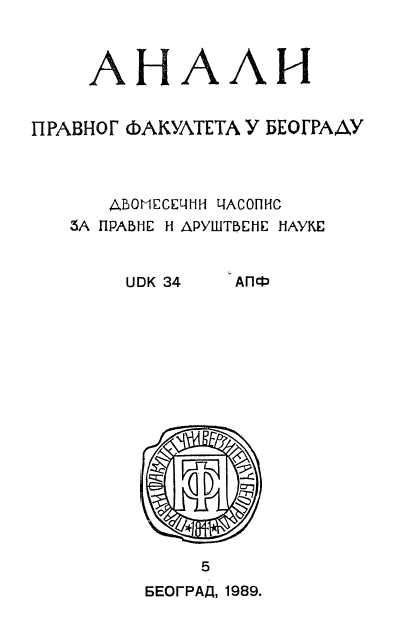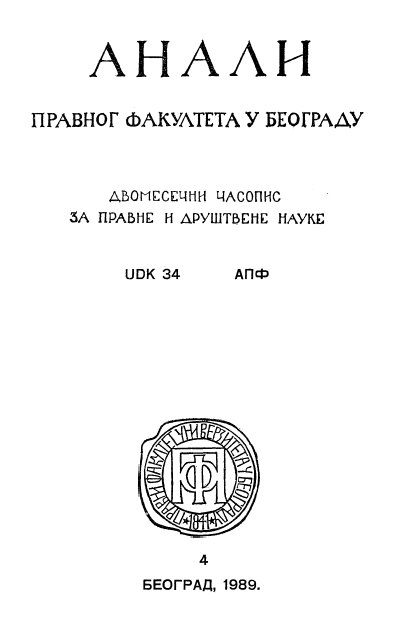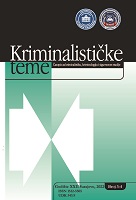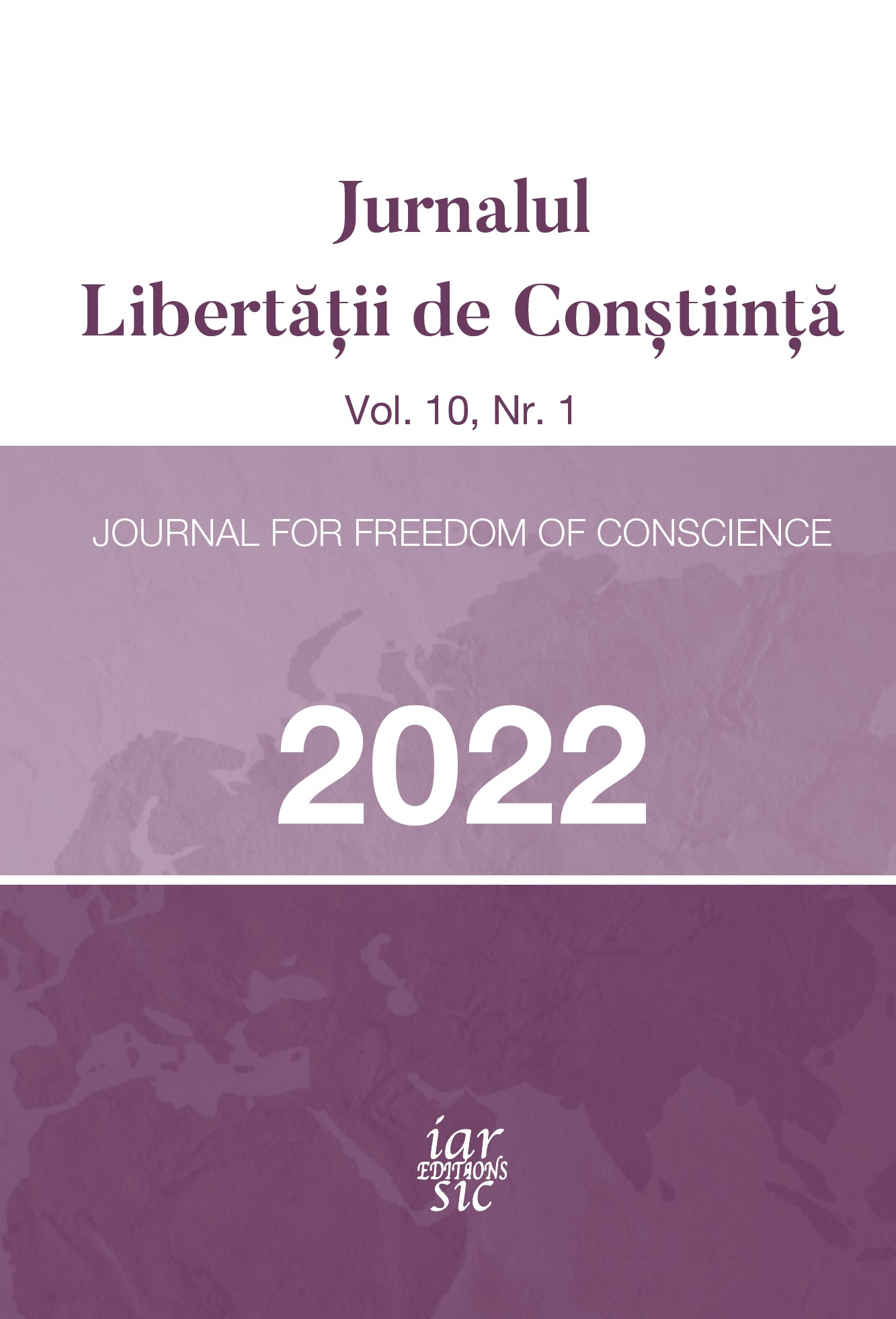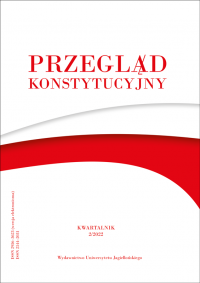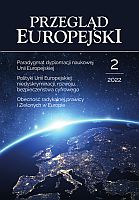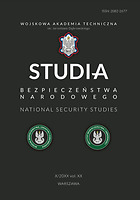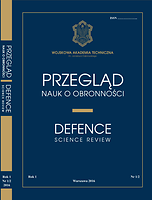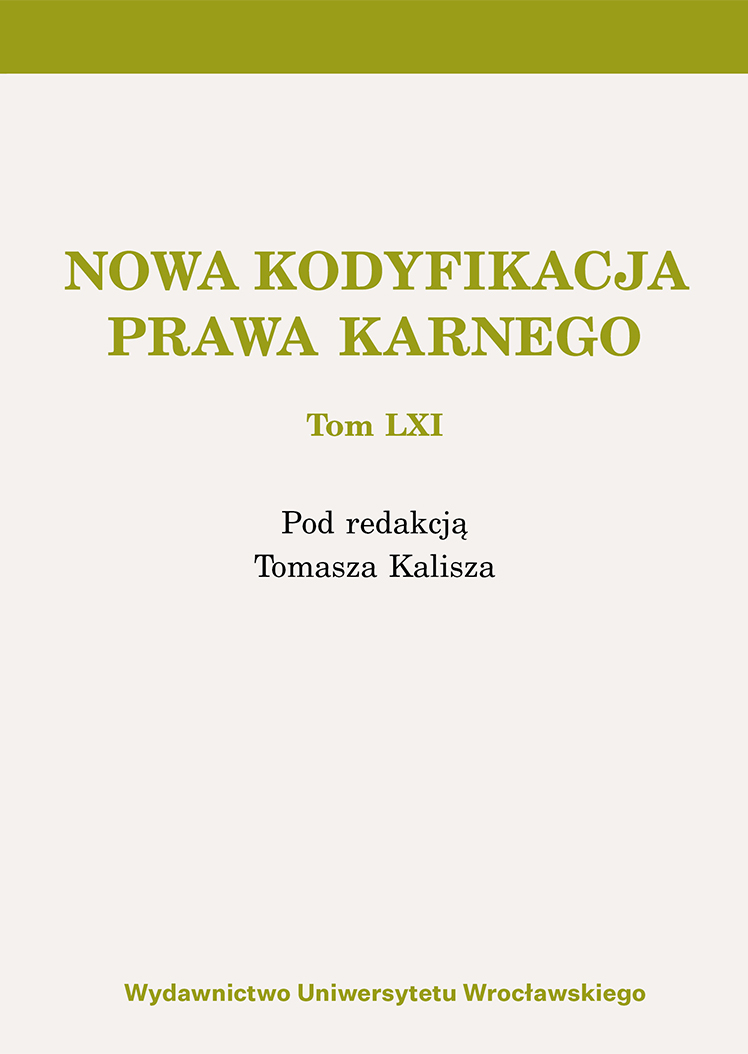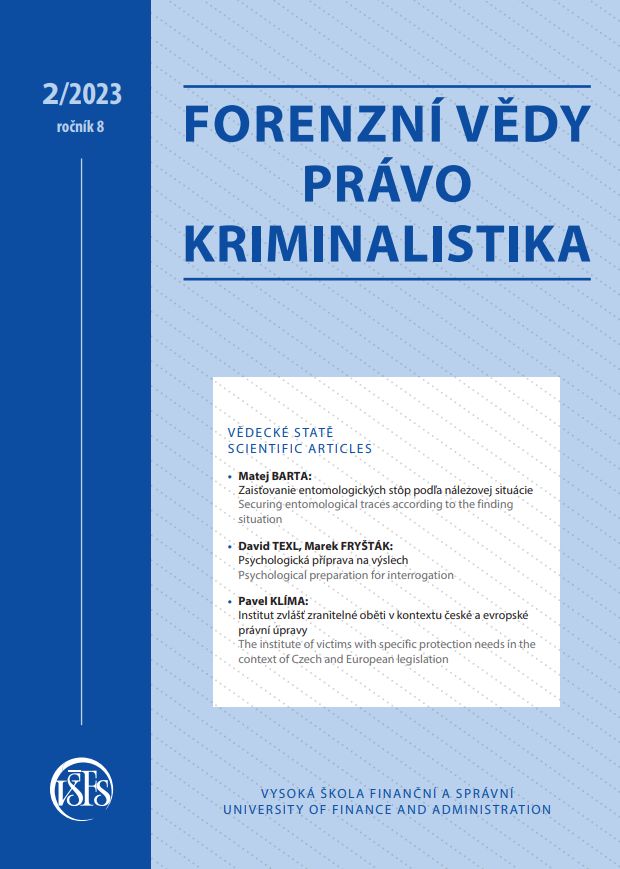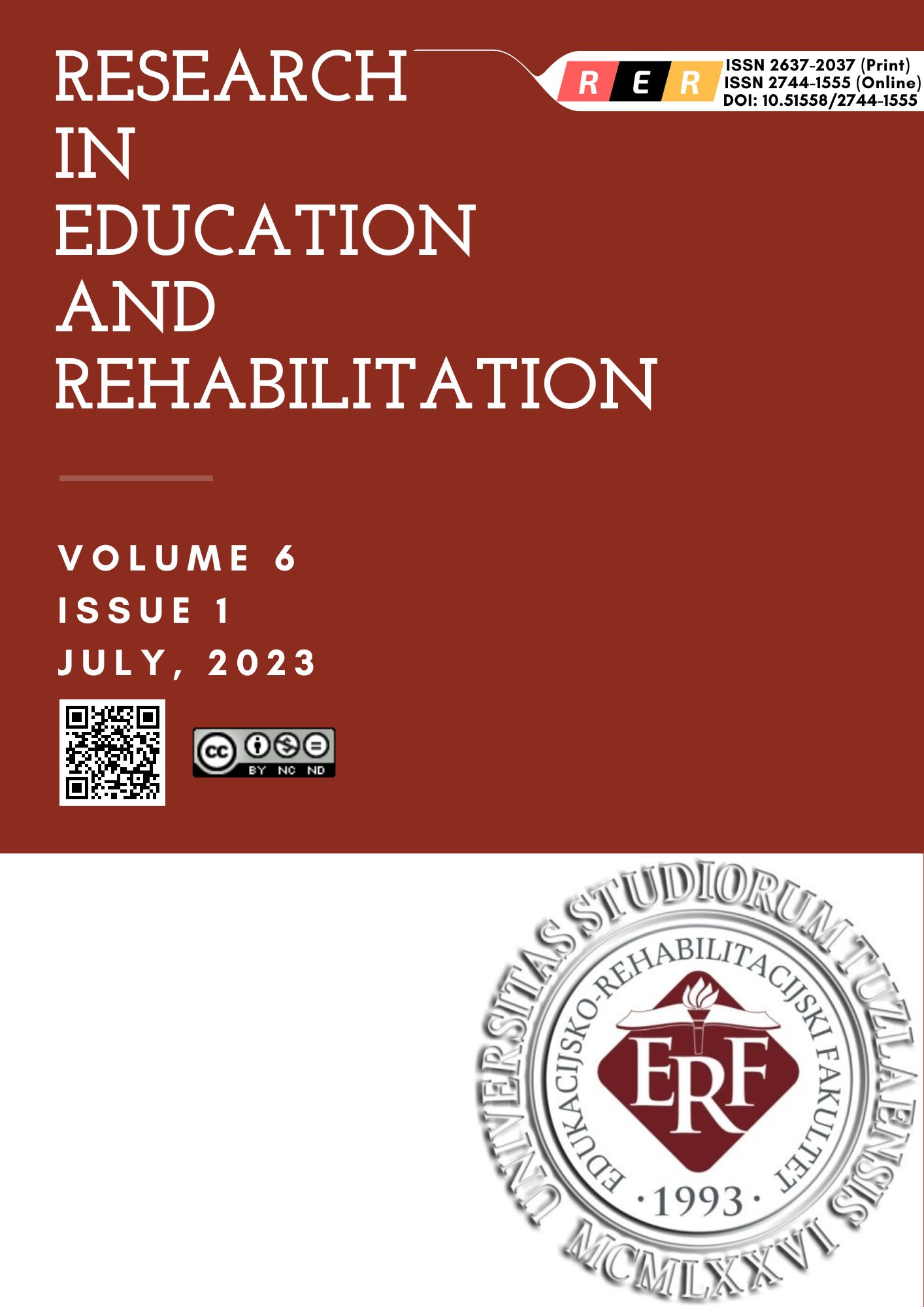Author(s): Eliza Mazur,Paulina Forma / Language(s): English
Issue: 36-37/2020
Prison isolation forces a person serving a sentence of imprisonment to comply with the organizational regulations of the penitentiary unit and to adapt to completely different, previously unknown living conditions. The conditions prevailing in the prison make it impossible to meet many mental and social needs related to freedom, sex, social contacts or preferences. Many studies on self-injury emphasize that the reality of prison and the fact of losing freedom adversely affects the behaviour and well-being of people serving prison sentences. Marking, standardization and degradation are related to the process of depersonalization. Behaviours directed against oneself concern all groups of convicts, especially juveniles, remand prisoners and penitentiary recidivists. The aim of the article, apart from presenting the theoretical aspect of self-injury, is, inter alia, to determine what kind of self-harm is committed by people serving a sentence of imprisonment and what are their reasons. The authors look for answers to the research problems in the results of the research carried out in the Kielce Remand Prison in a group of a total of 120 convicted men and women (penitentiary recidivists, people convicted for the first time). In the light of the obtained research results, the convicts perform various self-injuries of the body. The most characteristic are: skin and subcutaneous tissue incisions on the abdomen, chest, forearms, swallowing objects, refusal to eat, inserting objects under the skin, eye powders, oral poisoning. Psychologists see the determinants of this phenomenon in personality disorders, which are characterized by: aggressiveness, irritability, tendency to impulsive and primitive behaviour, the predominance of emotionality over intellectual reactions, low self-esteem and guilt. On the other hand, practitioners working in a prison on a daily basis believe that the deprivation of needs and frustration in conditions of prison isolation are the main source of this type of behaviour. In this way, people who commit acts of self-harm deal with enormous psychological tension. For them, it is also a form of survival in conditions of penitentiary isolation.
More...
